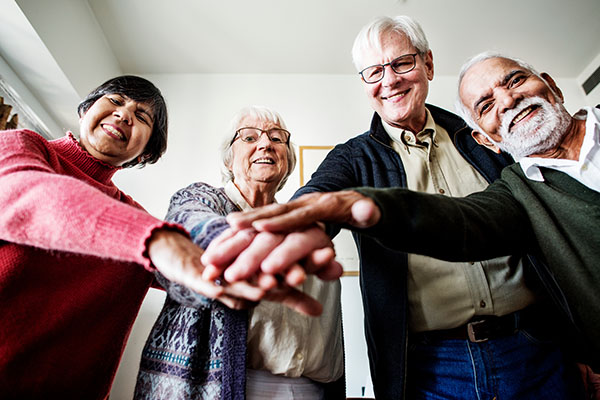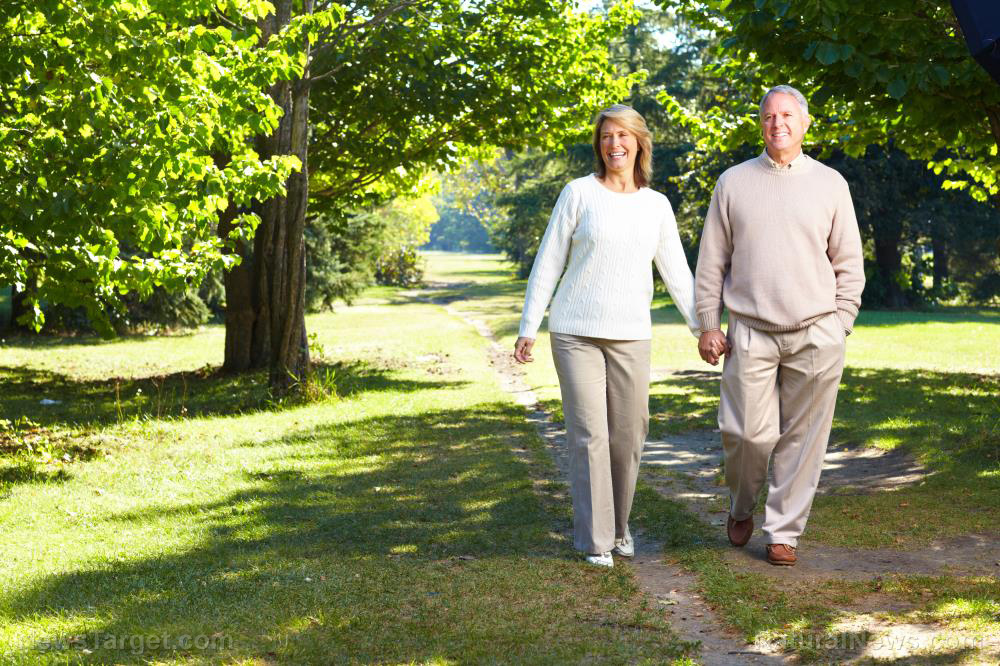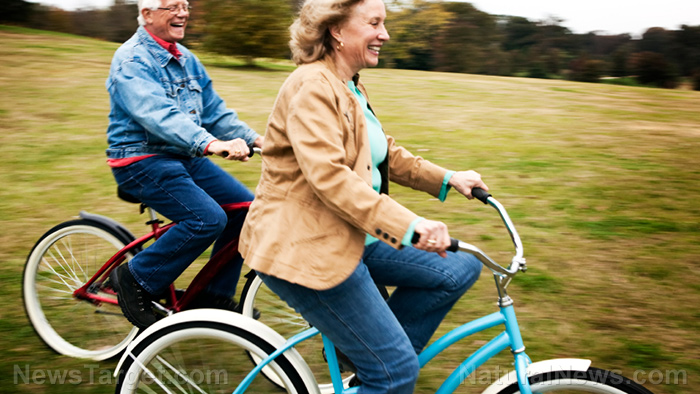Age like fine wine: Tips for healthy and successful aging
10/19/2022 / By Olivia Cook

A study published in the journal The Gerontologist described successful aging as “encompassing the avoidance of disease and disability, the maintenance of high physical and cognitive function and sustained engagement in social and productive activities.”
Aging comes with many biological changes that damage the body and shorten lifespan. Old age is a life phase associated with various health, cognitive, emotional, social and financial issues and personal concerns.
Researchers of many studies published by the National Institute of Aging recommend the following for older adults to improve their chances of maintaining optimal health, productivity and overall wellness:
Good nutrition
Researchers of a study published in the journal Nutrients concluded that since the biological processes of aging cannot be controlled, changing one’s nutritional patterns is crucial to “prevent the emergence and development of diseases, boost longevity to enhance one’s quality of life and promote healthy aging.”
Low-carbohydrate diets or diets rich in vegetables, fruits, nuts, cereals, fish and unsaturated fats that contain antioxidants, potassium and omega-3s can help reduce the risk of cardiovascular diseases and obesity, protect the brain from aging and promote an overall healthier life. (Related: Eating certain vegetables could prevent dementia in older adults)
Sleep
A study published in The American Journal of Geriatric Psychiatry positively correlated continuity and depth of sleep with aging well.
Researchers concluded that good, quality sleep in later life contributed to daytime alertness, physical and mental health-related quality of life, social support and coping strategies – markers of good functioning across a variety of domains in “successful agers” 75 years and older. (Related: Excessive daytime sleepiness in older adults could be an indicator of plaque buildup in the brain increasing risk of dementia)
Motion, movement and physical activity
In a study published in the journal Brain Sciences, the authors conveyed these key messages: an active lifestyle contributes to brain development; physical training supports healthy brain functions during aging and results to a good quality of life as an older person; and diverse stimuli are a key factor in maintaining brain health.
“Use it or lose it” is a fitting old maxim that sums up much of the study authors’ advice for healthy aging. While the brain may not be a muscle, it is an incredible machine that controls thought, memory, emotion, touch, motor skills, breathing, temperature, hunger and every process that regulates the body. If left inactive for long, it can “rust and wither away.”
Researchers of a study published in British Medical Journal Open have shown the detrimental effect of a sedentary lifestyle on health, especially on the aging populace. Their analysis of data collected from the National Health and Nutrition Examination Survey (NHANES) has found that cutting daily sitting time to under three hours could extend life expectancy by a whopping two years and restricting television binge-watching to under two hours daily could extend life span by almost 1.4 years. (Related: Why older adults should do resistance training.)
Leisure activities, hobbies, learning, passion and social activity
A study published in the journal PLoS One reported on the causal relationship between older adults engaging in leisure activities and healthy aging. Researchers noted that engaging in leisure activities is beneficial in preserving the cognitive function, physical mobility and function, mental health and overall well-being of older adults.
The study authors recommend taking up and being passionate about new hobbies and learning new skills or activities — indoors, outdoors, alone and with friends — as cross-training for the brain.
Regular interaction with other people can also prevent the brain from “slowing down,” according to a study published in The International Journal of Aging and Human Development.
Positivity and good vibes/positive thinking
A study published in the Journal of Personality and Social Psychology found that regardless of predictors, such as age, gender, socioeconomic status, loneliness and functional health, “older individuals with more positive self-perceptions of aging and the will to live (measured up to 23 years earlier) lived 7.5 years longer than those with less positive self-perceptions of aging.” (Related: Study links positive thinking in older adults to increased longevity.)
The analysis was based on the responses of 600 individuals aged 50 years and older who participated in the Ohio Longitudinal Study of Aging and Retirement (OLSAR), which was matched by the researchers to mortality data obtained from the National Death Index.
Visit AgingSecrets.news for more stories like this.
Watch this video about an exercise that works out your entire body.
This video is from the 50+ Healthy Aging channel at Brighteon.com.
More related stories:
Researchers share 3 steps to ensure optimal brain health.
Sources:
Submit a correction >>
Tagged Under:
aging secrets, anti-aging, exercise, fitness, healthy aging, longevity, men's health, mental health, Mind, mind body science, natural health, nutrition, older adults, physical activity, prevention, sleep, successful aging, tips, women's health
This article may contain statements that reflect the opinion of the author
RECENT NEWS & ARTICLES
LongevityScienceNews.com is a fact-based public education website published by Longevity Science News Features, LLC.
All content copyright © 2018 by Longevity Science News Features, LLC.
Contact Us with Tips or Corrections
All trademarks, registered trademarks and servicemarks mentioned on this site are the property of their respective owners.




















